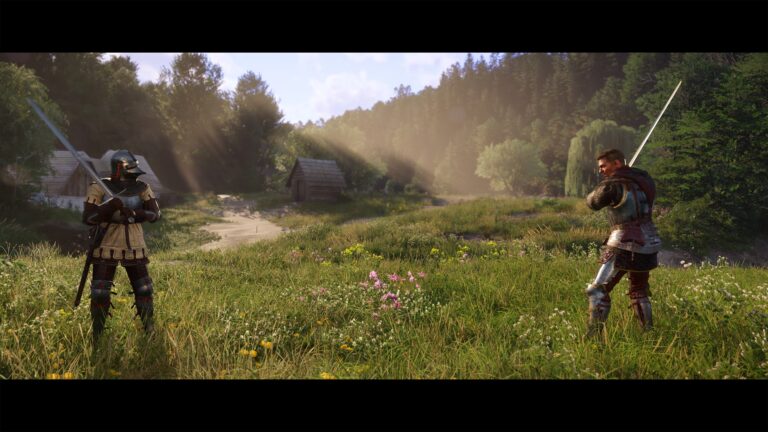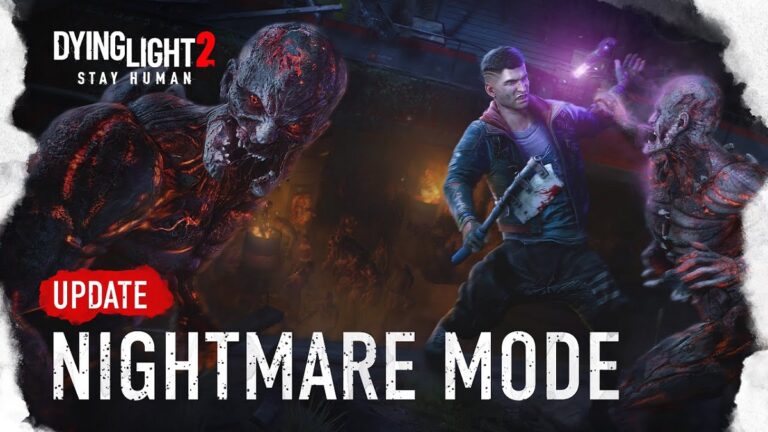I look on with a sly grimace from the Tenpenny Tower balcony as the heat from the blast wave washes over me. After discovering that the presumed inert atomic bomb at the center of the town of Megaton was in fact live, a series of depraved choices led me to this moment. By detonating the device, I’ve murdered a vast majority of the town and pleased my entirely corrupt sponsor, Allistair Tenpenny. Am I a terrible person? By any normal standards surely, but what does that matter anymore?
It’s all a wasteland anyway.
The moment above, as played out in the classic RPG Fallout 3, is emblematic of a never-ending series of scenarios being spun out across millions of flat screens daily. From nuclear bombs to drastic climate catastrophes, zombies to good old-fashioned Nazis – gamers love living out the apocalypse. In fact, it can seemingly be a challenge to browse the ranks of newly released titles to find those that don’t take place during an End Time event. But why, when gaming is for most of us meant to be primarily a stress-reducing, free time-passing hit of dopamine, do we choose to continue to play pretend in shattered, broken, lost worlds? I believe the answer lies in the freedom of choice, the erasure of moral standards and the inflated power fantasy that gaming in the apocalypse provides us.
School’s Out Forever
One of the most commonly stated reasons that longtime gamers give for continuing to take part in our shared hobby is that in our games, the normal rules don’t apply. While in real life we must juggle with the realities and responsibilities that come with school and family, and later work, in our games we can transcend the limits of our lives, whether that be physically, financially, or otherwise. Want to drive 200 on the freeway in a sports car? Tough for most people, but not in Grand Theft Auto. Fancy a flight to another galaxy? Not in this life – but fire up Mass Effect and you’re there.
With the apocalypse as a backdrop, however, this choice is broadened even further. Not only can you drive 200 on the freeway, but there aren’t even any digital cops left to chase you. Not only can you visit far-away locations, but the erasure of its former systems and civilizations means that the limits to which you can freely explore, collect, and maintain your virtual life are tied only to the game developer’s dreams and technical limits. With games that take place within either a simulation of our world or a vision of another similar locale, the suspension of disbelief is mitigated by the implementation of civic and social systems. In other words, there are expected reactions to the player’s actions. Blow up a building, and civilians scatter as the military hunts you down. Steal a spoon from a guard’s pocket, get beat over the head. With a game set in an apocalypse, however, there is no spoon (or the spoon’s already melted to the now-mutant guard’s head). The end of days makes for a truly blank slate.
Nothing’s Bad When Everything’s Worse
But what good’s a blank slate without the means to mark it up and make something of it? Thankfully, apocalyptic narratives in gaming provide us with the perfect means – our character’s simulated persona, role-played by each individual gamer. As legions of apocalyptic titles have shown, it’s incredibly satisfying and addictive to run a playthrough as a goody-two-shoes, spending hours helping your fellow doomed souls, and then turn around after the credits, only to begin your journey anew as Death Incarnate.
Why is the apocalypse the perfect setting for this multiple personality tug-of-war? Again, it’s not necessarily in what these games add, but rather what they take away: in this case, a sense of accepted moral standards. When the starting point for your world takes place after all semblance of good and evil has been shattered, who can say what actions are ‘good’ or ‘bad’ any longer? In the absence of a simulated civilization that acts and reacts anything like our real-world counterparts, anarchy reigns. This frees up each gamer to truly play around with actions that would get us labeled depraved and barbaric in reality, but may be commonplace in a post-normal wasteland. The cartoonish level of destruction and suffering on offer in the larger context at once normalizes and sanitizes any action the player character may take. Anything goes!
There Can Be Only One
The concept of the power fantasy is one that virtually all games share, as it allows us to transcend our weak, earthly flesh prisons and be capable of whatever tasks our game creators put before us. Whether it be stomping on Goombas, hitting the winning 3 at the buzzer of the championship game, or mowing the perfect lawn (OK, maybe not that one), video games allow us to be more than we can be in reality. As gamers, we can come home from school or work, kick back, and immerse ourselves into situations where the homework, housework and bills of our every day don’t matter, as there are bigger fish to fry. Those Goombas aren’t going to stomp themselves! When gaming takes place inside an apocalyptic hellscape, however, the power fantasy is magnified – both due to the player character themselves and their adversaries, whether they be environmental or sentient.
In relation to the player character, an apocalyptic setting frames their every action in a more monumental light whether they are the last survivor fighting to retain their lost civilization’s customs or the one true hope to bring justice to their story’s villains. The main character in an apocalyptic game is frequently the only player, or at least one of very few, on that world’s stage that can affect massive, lasting change. Worlds are frequently destined to end without character actions, which are, of course, our actions. The stakes couldn’t be higher, which puts a greater emotional emphasis on our actions as the puppeteer on the other side of the screen. It’s enticing enough when the princess is in another castle – what about when the castle is the very last castle in this entire, shattered world, and if you don’t get there in time the bombs are going to blow, ending you and every other citizen of Mushroom Kingdom?
The power fantasy is also pushed to the limit by our characters’ antagonistic forces in apocalyptic video games. If the player character is pitted against nature itself, as with hardcore survival titles, juggling matters such as thirst, hunger, cold and heat meters could mean the difference between seeing the next chapter of the story or seeing a permanent game over screen for your character. If your character is up against others trying to make the wasteland their own, the player knows that their counterparts, whether controlled by other real-life players in online apocalypses or driven by AI in single-player titles, are similarly juggling the raised stakes that come with a destroyed world with no rules. The chips are down, the cards are stacked, and it’s everyone for themselves, winner take all. It would be horrifying in real life but in games? Yes, please!
Memento Mori
Much has been and can still be said about why audiences of every art form, whether it films, books, stage works or video games, love to spend their off-hours mired in imagined misery. Whether it be the removal of boundaries, the stripping of societal standards or just the wonderful feeling that forcing your character through another terrible day of surviving can bring us, it doesn’t seem like the apocalypse entertainment is going anywhere. Maybe it’s a cautionary tale – we create what we fear so that we can confront it in a safe and sanitized manner, without endangering our real lives. Or maybe, it’s just fun to blow off steam by firing rockets at innocents. Sure beats housework. Either way, it doesn’t seem a stretch to predict that gamers will be adventuring across destroyed and depraved worlds for years to come – perhaps until the day, we have to confront zombies in real life. And if we do, won’t it be nice to know we’ve had all this training?
Stay tuned at Gaming Instincts via Twitter, YouTube, Instagram, and Facebook for more gaming news.
No related posts.






